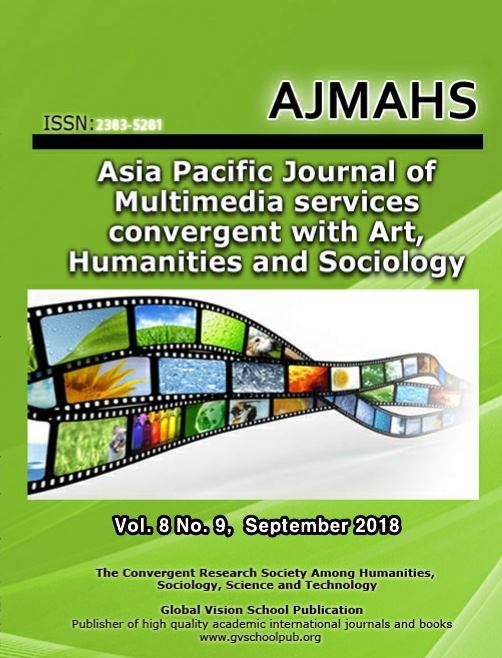인간을 기계에서 구원하기 위한 종교적 미장센
Religious Mise-en-Scene to Save the Humans from Machines: Fritz Lang’s Metropolis
- 인문사회과학기술융합학회
- 예술인문사회융합멀티미디어논문지
- 8권 9호
-
2018.09115 - 123 (9 pages)
- 88

이 논문의 목적은 Fritz Lang의 영화 Metropolis가 가진 독일의 표현주의적 속성을 영화사적 관점에서 고찰하고, 향후 할리우드를 중심으로 한 공상과학영화에 어떠한 영향을 끼쳤는지를 통사론적으로 논하는 것이다. 이 영화는 독일 표현주의 사조의 마지막 작품으로서 Hitler의 압제를 피해 도미한 다른 동료 영화인들과 함께 미국 할리우드 공상과학영화의 기틀을 마련했다는 점에서 연구가치가 있다. 특히 이 작품에서 Lang은 1920년대 후반의 독일사회에 나타난 전쟁과 산업혁명에 따른 사회적 병폐중 기계문명의 폐단을 종교적으로 승화하려는 주제의식을 보여주고 있다. 무엇보다 Lang은 이러한 주제를 효과적으로 표현하려는 의도에서 자연스럽게 산업주의가 인간과 기계의 부정적인 관계를 양산해내었음을 말하려했음에 틀림없다. 연구결과 Metropolis는 단순히 시대적인 면에서 장편 공상과학 영화의 효시로 이해되는 것에 더하여 그동안 기계에 의존해온 미국 사회를 늘 비판해온 이 부류 작품들의 전통적 주제의식에 단초를 제시하고 있다.
This paper aims to observe the aspect of the German expressionism shown in the film Metropolis by Fritz Lang from the angle of film history and discuss how it affected the science-fiction movie around Hollywood historically. This work has the value of research in that it gave a foundation to Hollywood science-fiction films of the U.S.A. with the other colleagues of the same field who went to America to flee from Hitler’s oppression. Especially, in this work, Lang provides the thematic consciousness to religiously sublimate the social ills made by the war and the industrial revolution of the German society in the late 1920s’. Above all, Lang must have tried to say that the industrialism produced the negative relationship between humans and machines which fact was naturally found out in the process to express his intention. Through the analysis, Metropolis presents a starting point to the traditional idea of these kinds of works always criticizing the American society having been dependent on machines in addition to being the first one of the long science-fiction movies in terms of time.
1. 서론
2. 독일 표현주의 영화가 미국의 할리우드로 건너갔던 이야기
3. 계급 간 분화현상을 담은 미장센을 종교적으로 승화하려는 주제의식
4. 결론
(0)
(0)